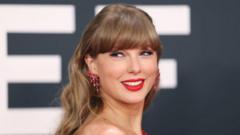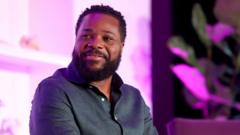Steven Bartlett's popular Diary of a CEO podcast is under scrutiny for failing to challenge harmful health claims made by guests, fostering distrust in conventional medicine, according to a BBC investigation.
Steven Bartlett's Podcast Draws Criticism for Promoting Health Misinformation

Steven Bartlett's Podcast Draws Criticism for Promoting Health Misinformation
BBC investigation reveals alarming health claims on Diary of a CEO podcast, raising concerns over misinformation.
In a recent BBC investigation, Steven Bartlett, host of the widely recognized Diary of a CEO podcast, has come under fire for allowing harmful health misinformation to proliferate among his guests. These claims, ranging from dubious cancer treatments to promoting anti-vaccine rhetoric, were reportedly presented without adequate challenge or critique by Bartlett, leading experts to express concerns over the implications for listeners' health and trust in conventional medicine.
Over an analysis of 15 health-focused episodes, it was revealed that the podcast averaged 14 misleading health claims per episode, contradicting established scientific research. Among the high-profile guests featured on Bartlett’s show are figures such as the controversial doctor Aseem Malhotra, who famously labeled the Covid vaccine a “net negative for society” despite counter evidence provided by the World Health Organization.
Flight Studio, the podcast's production company owned by Bartlett, emphasized their commitment to "freedom of expression" and stated that the guests were thoroughly vetted. However, critics argue that this freedom comes with a responsibility to challenge dubious claims that could mislead the public.
Since shifting focus towards health-related topics, which began in the past 18 months, Bartlett's podcast has skyrocketed in viewership, seeing monthly audience numbers rise from nine million to 15 million, and generating an expected £20 million in revenue this year. Despite this success, the content has raised alarm bells regarding the promotion of alternative treatments over scientifically verified methods.
Experts, including cancer research professor David Grimes and public healthcare confidence specialist Heidi Larson, voiced strong concerns regarding the encouragement of misinformation, which can be detrimental to public health. In many instances, guests touted overly simplistic solutions to complex health challenges, often tying their claims to personal products or services for sale, leading to potential conflicts of interest.
Dr. Thomas Seyfried, a guest advocate for the ketogenic diet as a cancer treatment option, suggested that conventional therapies like chemotherapy only marginally benefit patients. This assertion was met with counterarguments from the medical community, stressing the importance of evidence-based practices and cautioning against extreme dietary restrictions during critical health interventions.
Adding to the controversy, Bartlett has financial interests in several health and wellness companies, including Huel and Zoe, raising questions about the influence of these associations on podcast content selections. He has previously promoted products that faced scrutiny, such as "Ear Seeds," which falsely claimed to heal chronic fatigue, and was later followed by a mandatory corrective disclaimer from the BBC.
The BBC has refrained from commenting on the specifics of Bartlett's podcast, while concerns about the lack of regulatory oversight regarding accuracy and fairness in the podcasting realm continue to underscore the challenge of misinformation dissemination in modern media platforms.




















